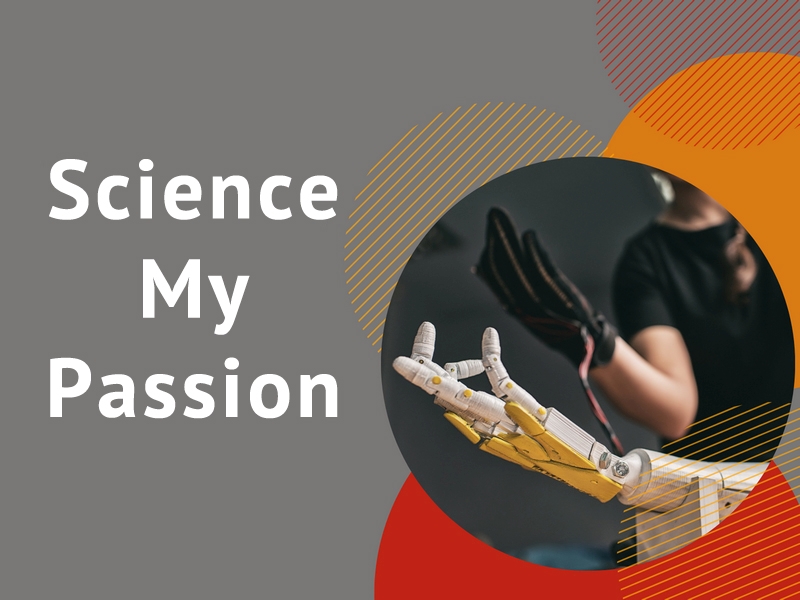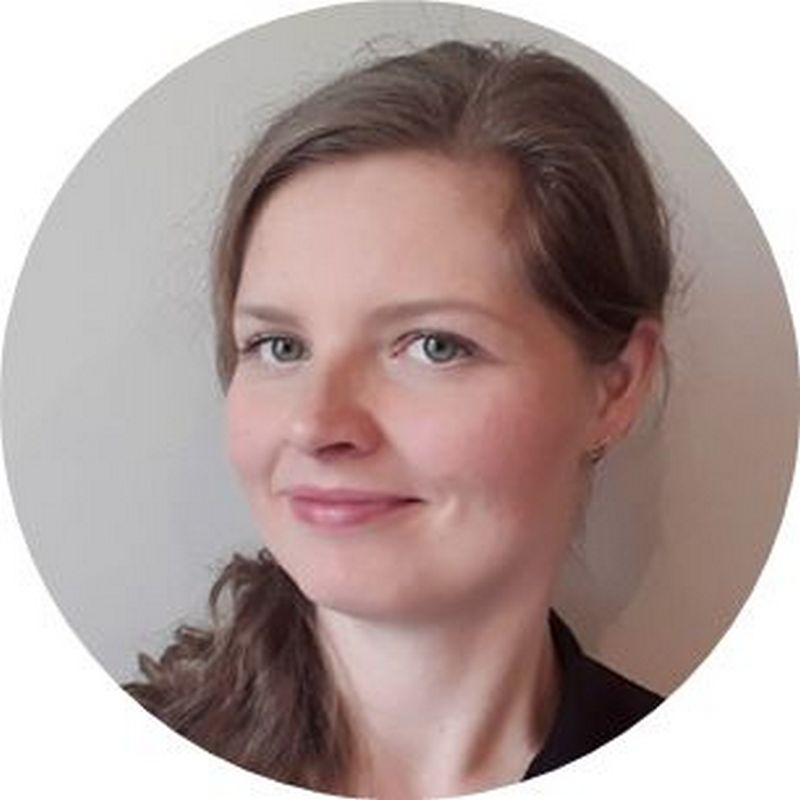Scientific language translator
Science as such often likes to use difficult words. Or maybe it’s more about the users who try to add some mystery to different phenomena in order to do science that is saturated with specialised terminology. And what if one would become a Prometheus who helped people and act as a scientific language translator? Joanna Orzeł, PhD from the Institute of Chemistry tells her story filled with bumps, decisions and surprises.
Have a nice read.
SCIENCE | MY PASSION
According to the definition taken from the Polish Language Dictionary, science is complete human knowledge arranged into a system of problems, but also a set of ideas that constitute a systematic whole and comprise a specific research field.
Science is also activity: learning and teaching.
Please read the “Science | My Passion” series, where our researchers present their work and show that science and research process can really draw us in.
Joanna Orzeł, PhD
Institute of Chemistry
photo: private archive
Everything in life happens for a reason
When I was asked to write a few words regarding the topic “science – my passion”, I read what a few of my colleagues, who had previously shared their stories, had to say, to get inspiration. I’ve come to the conclusion that my path is a bit different. I cannot say that I have always been interested in everything, that I conducted chemical experiments at home, or that I was inspired by my family or teachers who instilled a passion for science in me. It is true that learning logical things has always been easy for me. However, the ease of learning and being a scientist, although they have a common denominator, are not the same.
Choosing my studies in my teens, I wasn’t sure that I wanted to study chemistry. My interests as a high school student were not strictly focused on this field. True, chemistry was one of the subjects for which I did not have to prepare and which I simply liked. Nonetheless, I liked biology and math in largely the same way. I knew, however, that any degree programmes that required intensive study of dry facts were not interesting for me.
Chemistry vs. pharmacy
So, after verifying what I liked and what I didn’t like, I chose chemistry and pharmacy as fields of study that could make me happy in the future and which seemed interesting to study. Neither of them were a dream programme for me at the time of high school graduation. In the event of success in both recruitments, for purely sociological reasons, I would choose pharmacy. However, fate decided for me. I was simply not accepted into the pharmacy programme. I found myself in the group of those unfortunates who, in the first (and basically the only) round of recruitment, lacked one point to be accepted into medical university. In 2005, it was an unbridgeable gap due to the adopted recruitment structure (one person – one medical programme – one university in the whole country). So, guided by destiny, I began studying chemistry.
Teaching in the genes
I come from a family with “didactic” genes. Many women in my life have chosen a career in teaching. You could say that I knew this job inside out. However, from the beginning I knew that after graduating, I did not want to become a teacher in a traditional school. On the other hand, you could say completely contrary to the previous point, I’ve always liked teaching (and apparently I’m good at it). The idea of a scientific career, indispensably connected with teaching, appeared in my mind. Tentative and not yet fully clear, but still present. The alternative was a career path related to work in an accredited chemical laboratory. However, during my apprenticeship, I quickly came to the conclusion that I simply wasn’t suited for it. The routine that prevails (because it must) in such places stands in opposition to my character.
For the outsiders, chemistry studies are a difficult field, during which you have to constantly learn or prepare laboratory reports or presentations, and learning in the exam session is just the icing on this chemical cake (or rather the tip of the iceberg). And so the university period passed intensively and extremely quickly for me. I can’t say that I was an exemplary student. In my student record book there is an overview through all possible grades. The forced change of the master’s thesis supervisor several times was not conducive to the feeling of stabilisation. Thoughts about a scientific career receded into the background. However, fate again pushed me in the right direction. By an unexpected coincidence, I had the opportunity to participate in a student scientific conference. The trip would be possible under the condition of obtaining the necessary financial resources. In this way, I had the chance to be remembered by the person who in the future became the supervisor of my PhD thesis. Participation in this event showed me that there is a world where chemistry is a source of interesting discussions. The world of people who are simply into it, have fun and who understand chemistry. That’s when I knew this was my world!
Chemometrics? What is that?
After returning from the trip, I received a proposal to start doctoral studies and carry out research bordering on chemistry and computational methods known as chemometrics. While the first part (to some extent) I explored during my studies, the second part I knew at most from the name and cursory theory. However, thanks to the support of people who made up the research team in which I started my scientific path at that time, chemometrics became less foreign over time. I got to know what “doing science” is and how different it is from the ideas that I or the general public had. I could also pursue my other favourite job – teaching students. Although teaching duties are for most scientists only an addition to the development and exploration of a selected field, in my case it is a pleasant addition.
During my doctoral studies, I did not have a single chosen topic. There were various issues that allowed me to broaden my perspective, learn new things, develop my passion. I definitely wasn’t bored and didn’t have time to get into a routine. I’ve hit the wall many times. Some of my work I could casually throw in the trash, because the results were useless. I’m not a special case in this way. Every scientist fails at some point in their journey. It is an indispensable part of exploring what we do not yet know. However, driven by passion, I took up new scientific paths. Finally, in cooperation with my supervisor, we managed to gather these seemingly unrelated issues into one coherent and, as it turned out, good quality whole. My dissertation was awarded by the Scientific Council of the Institute of Chemistry of the University of Silesia and by experts of the Polish Academy of Sciences.
Translator
Fortunately, after defending my PhD thesis, I can continue to pursue my interests. On the one hand, I work as a scientist. I am adding my little bricks in the exponential growth we are currently seeing in the context of the development of science. On the other hand, I train young chemists. By showing them not only chemistry itself, but also the perspectives that these studies give. I share with them my non-obvious story. Perhaps thanks to this, I will infect them with my passion at least a little. A few years ago, also as a result of a twist of fate, I found another passion related to science. I write popular science articles, which, among others, are published in one of the largest portals on broadly understood health issues. You could say that I am a translator of scientific language into colloquial language, or perhaps more into an accessible language.
Another twist of fate made me take my first steps as an independent researcher this year. I don’t know if I have enough strength and passion to do it. However, taught by experience, I will see what life will bring.







